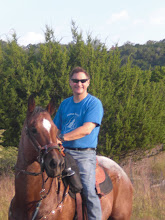 Edgar Rice Burroughs’ Martian tales portrayed
religious figures as frauds and scheming political leaders, not ordinary
mortals touched by the divine and capable of miraculous wonders.
Edgar Rice Burroughs’ Martian tales portrayed
religious figures as frauds and scheming political leaders, not ordinary
mortals touched by the divine and capable of miraculous wonders.
“The whole fabric of our religion
is based upon superstitious belief in lies that have been foisted upon us for
ages by those directly above us, to whose personal profit and aggrandizement it
was to have us continue to believe as they wished us to believe. I am ready to cast off the ties that bind me. I am ready to defy Issus herself, but what
will it avail us?” (GM, X)
Despite
the lack of legitimate priests and wonder-workers in the source material, most
fantastical roleplaying systems rely on those character types and their
presence is expected. Furthermore, Burroughs’ novels are not lacking
in wondrous, spell-like occurrences. This
chapter is intended to assist the game master caught “between the wild thoat of certainty and the mad zitidar of fact”
(GM, III) by introducing methods to resolve this conflict between player
expectations and the source material, as well as providing rules for
adjudicating super-natural effects.
Magical Barsoom
The referee has several options if he wishes to expand
upon the Martian tales that inspired Red
Planet and include magical phenomenon in the game. He is free to use all, some, or none of the
suggestions below.
1)
Allow individual spells to select
characters: Spells are not magical effects, but the product of exceptional
mental prowess. Many telepaths exists on
Mars; that a select few are able to create wondrous phenomena by thought alone
is plausible. In this case, the priest’s
or parapsychologist’s power comes from within. This is the best option for GMs wishing to
keep religion a superstition in their games.
2)
Religious Revival: Following the
death of Issus, a new spiritual age arises on Barsoom as Martians of all colors
return to the nearly forgotten deities worshiped by their ancestors. This option might serve as the plot of
several game sessions where the characters seek out lost temples in ruined
cities to recover religious texts, icons, and other temple goods now in demand.
3)
Priests of specific origin: Although
the cult of Issus is revealed to be fraudulent, this need not be the case of
all religions. In ancient isolated, or exotic populations, (CM, V), true gods
are worshiped that grant their devotees special powers. All priest characters
must originate from one of these places or groups, and may face persecution
outside their small enclaves if they do not keep their beliefs and origin secret.
“Gahan, a man of culture and high
intelligence, held few if any superstitions. In common with nearly all races of Barsoom he
clung, more or less inherently, to a certain exalted form of ancestor worship,
though it was rather the memory or legends of the virtues and heroic deeds of
his forebears that he deified rather than themselves. .. . he did not believe that they had the
power either for good or for evil other than the effect that their example
while living might have had upon following generations; he did not believe
therefore in the materialization of dead spirits.” (CM
XX)
Miniatures from
BronzeAgeMinDOTcom


























You had me at naked woman on altar.
ReplyDeletereminds me of Eldritch Wizardry
ReplyDelete